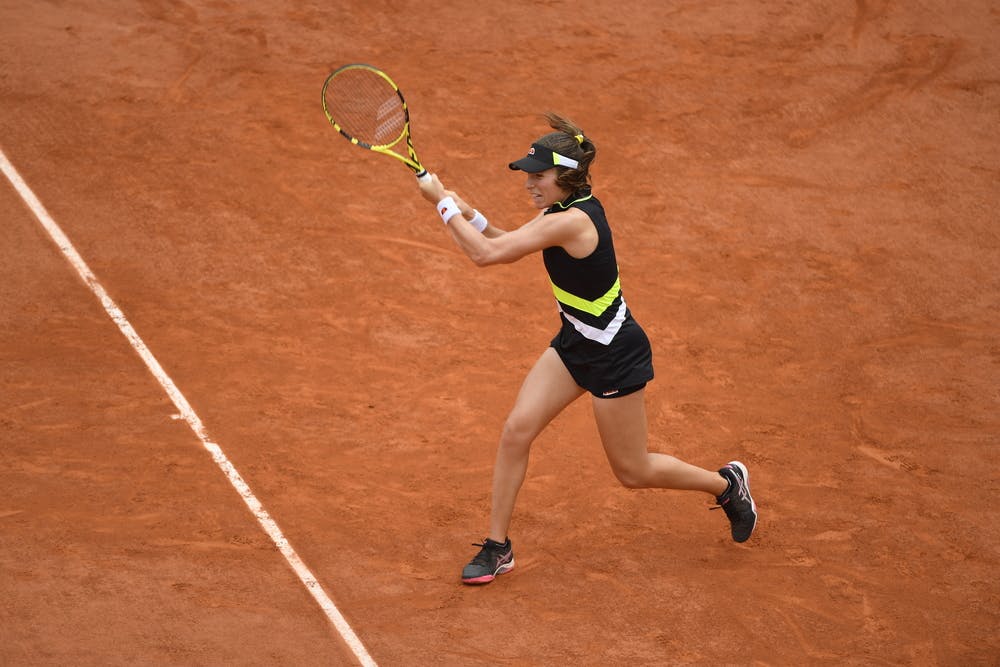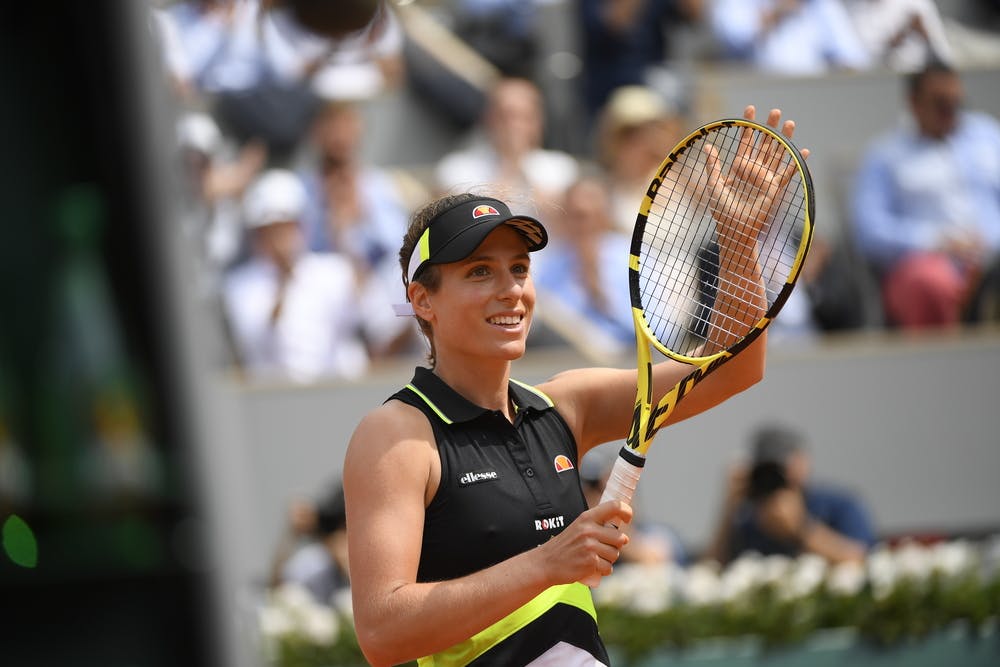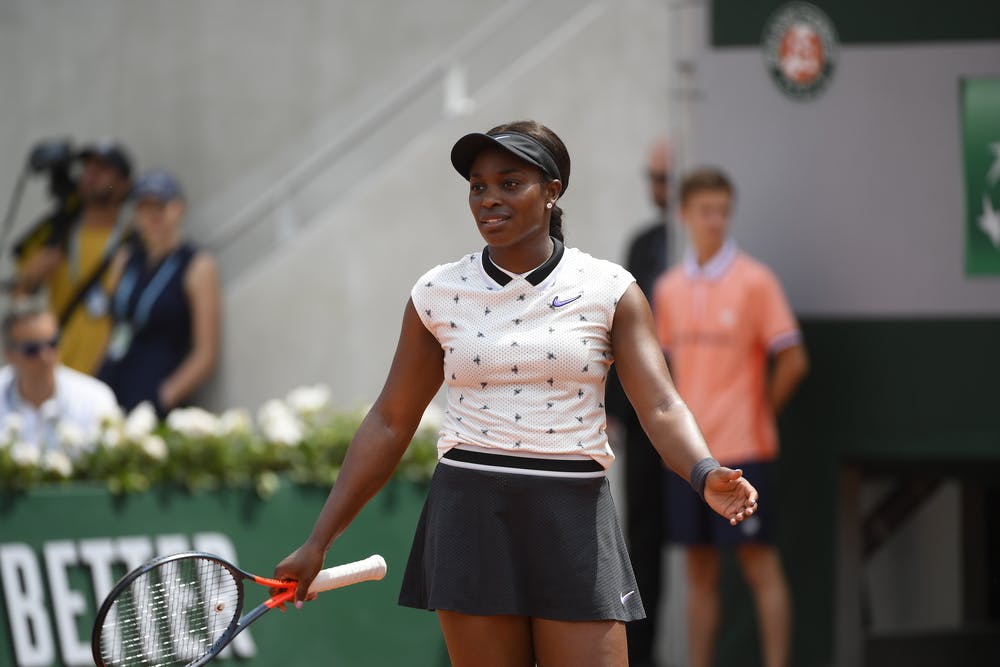Her ploy, developed in tandem with coach Dimitri Zovialoff since they began working together last autumn, is a new way of thinking. Previously Konta suffered somewhat from a no-Plan-B mindset, whereby if her initial tactic veered off-course, she was unable to adapt and negativity crowded in. But here she has spoken of being “malleable” about unfolding match events, “having acceptance” of them.
Rather in the manner of mindfulness, it is subtly different from the common competitive mindset of focusing on the positive. It means frustration rarely touches her, freeing her to move on and find her optimum game.
“He's been great in just encouraging me and giving me the space to play the way I want to play, not putting too many restraints or restrictions on myself,” confirmed Konta after steaming past Stephens. “I’m enjoying that self-discovery process of being the player who I want to be, trusting the decisions I make out there. It’s a really nice journey to be on. I feel a lot of ownership over it, which is a really nice place to be.”
Dominance over Stephens
The result was plain to see in this, her third 2019 defeat of Stephens. As the American discovered, it is impossible to disrupt an opponent who, win or lose, simply leaves each completed point behind.
That was the case from the off here, because the game in which Konta was perhaps most vulnerable to her old mental patterns was the very first one. Unruffled by two whistling Stephens winners and her own double fault, Konta remained zoned in on her own process throughout a break point, four deuces and eight minutes. That first achievement sealed, she began forcing errors from last year’s Roland-Garros finalist, sewing together some gorgeous backhand work for the break.
Stephens, so often a silent assassin, shrieked in frustration as the Konta backhand bit her time and again. Visibly floored by the pace of events, the American could not regroup. She was rapidly not just a set down, but crucially another break too as once again Konta hustled her into error.
 ROLAND-GARROS
18 May - 7 June 2026
ROLAND-GARROS
18 May - 7 June 2026




